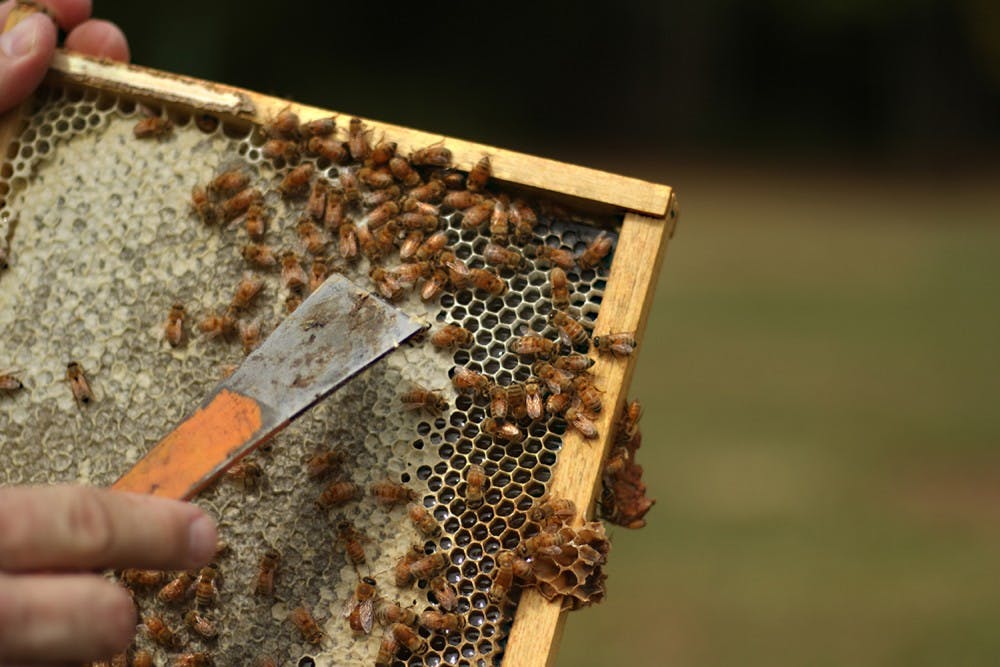“It's very difficult to ban it outright and particularly under the current legislative makeup,” Harrison said.
Preston Peck, the policy director at Toxic Free NC, has been working closely with Harrison and other representatives in pushing for legislation to protect bees and other pollinators.
The EPA estimated roughly 25 percent of all pesticides are used in homes, such as landscaping products, from 2007 data, Peck said. The N.C. bill is limited to consumer use because of the wide use of neonicotinoid’s in North Carolina’s agricultural industry.
“This specific class of pesticides, neonics, are used primarily on corn, soy and cotton, and those are three huge crops for North Carolina in our number one industry," Peck said. "So to ban them altogether would be a drastic change on the way that we cultivate our main crops in North Carolina, and the state just can't handle that kind of shift this quickly."
Peck said he has been presenting to the North Carolina Pesticide Board since November 2014. He said the bill addresses neonicotinoids due to their particularly damaging impacts on pollinators.
Neonicotinoids are quickly and easily absorbed into treated plants or crops, and they make the plants toxic to insects. They have been proven to cause harmful effects, such as impairment of feeding behavior, a weakened immune system and an increase in susceptibility to diseases and parasites that can eventually lead to death.
“Every part of the plant contains some concentration of this chemical if it's taken up," Peck said. "But we're finding that only some research is saying around only 2 to 20 percent of the chemical is actually taken up by the plant leaving, you know, anywhere from 80 to 98 percent in the plant and in the soil and in the water.”
In January, the U.S. Fish and Wildlife Service officially ruled the rusty patched bumble bee as endangered, which marks the first time in the United States that a bumblebee species has been designated as endangered. The rusty patched bumblebee population has dropped 87 percent in the last 20 years. The drop in bee populations has been linked to habitat loss, diseases and the use of pesticides such as neonicotinoids.
Harrison and other sponsors of the bill called it one that is pro-agriculture, which is vital to the $70 billion agricultural industry in North Carolina.
North Carolina has the largest beekeeping association in the United States as well as a long history of beekeeping protection, Peck said.
“Because it's so diverse and because we have the mountains on one end and then sea on the other, we have a necessity to continue that spirit and legacy of promoting biodiversity and protecting our various ecosystems," he said. "We have to support numerous species including native pollinators across the state.”
@charlie_anneh
To get the day's news and headlines in your inbox each morning, sign up for our email newsletters.
state@dailytarheel.com




